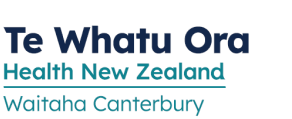What does it do?
Warfarin is used to treat and help prevent clots in your blood. It reduces your chance of having a stroke and new clots forming in your legs or lungs. It is also used to help prevent clots in people who have had a mechanical heart valve replacement.
Before you start
- Tell your doctor if you have bleeding problems.
- Tell your doctor if you are pregnant, planning to become pregnant, or breastfeeding.
How should you take it?
Take warfarin regularly as directed with a glass of water. Take it at the same time each day.
Your dose will depend on a blood test called an INR. This measures how long it takes your blood to clot. Your health professional will tell you what your INR is and what dose to take. It is important to record your INR and dose.
Warfarin comes in two brands in NZ (Marevan® and Coumadin®). Check which brand you have and stick to it.
Warfarin comes in different strengths, with different colours. Most people take the Marevan® brand shown in the picture below. If your tablets look different than usual, check with your pharmacist.
What if you forget a dose?
Take the missed dose if you remember on the same day. If not, skip the dose and carry on as normal. Do not take two doses on the same day. Record any missed doses and tell your health professional on your next visit.
Can you take other medicines?
Some medicines available without a prescription may react with warfarin including:
- anti-inflammatories, such as diclofenac (e.g. Voltaren®), ibuprofen (e.g. Nurofen®), or aspirin (e.g. Disprin®, in doses used for pain relief). These can also be found in some cold and flu medicines (e.g. Nurofen Cold and Flu®).
- low-dose aspirin (e.g. Cartia®) - sometimes prescribed with warfarin, check with your doctor.
Warfarin can react with many medicines, sometimes with severe results. Remember to tell your pharmacist or doctor you are taking warfarin before starting any other medicines or treatments, including over-the-counter medicines, vitamins, herbal products or recreational drugs.
What side effects might you notice?
| Side Effects | Recommended action |
|---|---|
|
Bleeding you cannot stop, bruises that get bigger, coughing or vomiting blood, vomit that looks like coffee grounds, red or dark brown urine, red or black poo, severe headache (may be signs of bleeding) Skin rash, change in skin colour (blue or purple) |
Tell your doctor immediately |
|
Hair loss or thinning |
Tell your doctor if troublesome |
If you notice any other effects, discuss them with your doctor or pharmacist.
Other information:
- It is important to tell anyone who gives you medical or dental treatment (e.g. doctor, dentist, pharmacist or podiatrist) that you are taking warfarin.
- You may bleed or bruise more easily while you are taking warfarin. Take care or avoid activities that may cause bleeding e.g. tattoos, piercings and contact sports.
- If you have a serious fall or hurt your head, talk to or see a doctor straight away.
- Changes in your diet may affect your INR. Talk to your health professional.
- Alcohol can increase your chance of bleeding. You can still have the occasional drink, but avoid binge drinking.
This leaflet contains important, but not all, information about this medicine.
Prepared by the MyMedicines Committee at Christchurch Hospital, Te Whatu Ora - Waitaha, New Zealand. September 2025
For more general information about this sheet and its contents, see: What does a My Medicines sheet cover?
Te Reo Māori
Te Reo Māori information sheets supported by Health Quality and Safety Commission New Zealand
Web links for this sheet in different formats
Click on buttons to copy web addresses for this leaflet:
If your browser does not automatically copy these links use its copy command instead.
About My Medicines
My Medicines Patient Information Leaflets (PILs) contain important, but not all, information about the medicines they describe.
For more information about the sheets, see: What does a My Medicines sheet cover?
My Medicines is developed by a team at Te Whatu Ora – Waitaha. Our team is made up of doctors, pharmacists, and a non-medical person to help us keep to plain language. We also discuss our information with specialist health professionals or groups when needed

